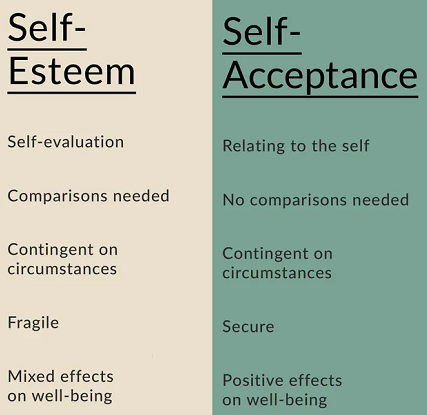Unit 1: Self-Esteem: Valuing Yourself
Unit 1: Self-Esteem: Valuing Yourself

Unit 1: Self-Esteem: Valuing Yourself

Unit 1: Self-Esteem: Valuing Yourself
This unit discusses what self-esteem is, how it effects our daily lives, and different ways to build self-esteem.
What Is Self-Esteem?
In psychology, the term self-esteem is used to describe a person's overall sense of self-worth or personal value. In other words, how much you appreciate and like yourself.
- Self-esteem is often seen as a personality trait, which means that it tends to be stable and enduring.
- Self-esteem can involve a variety of beliefs about yourself, such as the appraisal of your own appearance, beliefs, emotions, and behaviors.
Why Self-Esteem Is Important
Self-esteem can play a significant role in your motivation and success throughout your life. Low self-esteem may hold you back from succeeding at school or work because you don't believe yourself to be capable of success.
By contrast, having a healthy self-esteem can help you achieve because you navigate life with a positive, assertive attitude and believe you can accomplish your goals.
Factors That Can Influence Self-Esteem
As you might imagine, there are different factors that can influence self-esteem. Genetic factors that help shape overall personality can play a role, but it is often our experiences that form the basis for overall self-esteem. Those who consistently receive overly critical or negative assessments from caregivers, family members, and friends, for example, will likely experience problems with low self-esteem.
Additionally, your inner thinking, age, any potential illnesses, disabilities, or physical limitations, and your job can affect your self-esteem.
Unit Focus
- meaning of self-esteem
- role self-esteem plays in our lives
- ways to build and maintain high self-esteem
- causes of low self-esteem
Vocabulary
Lesson Reading
Life Management Concepts (click image to start)

